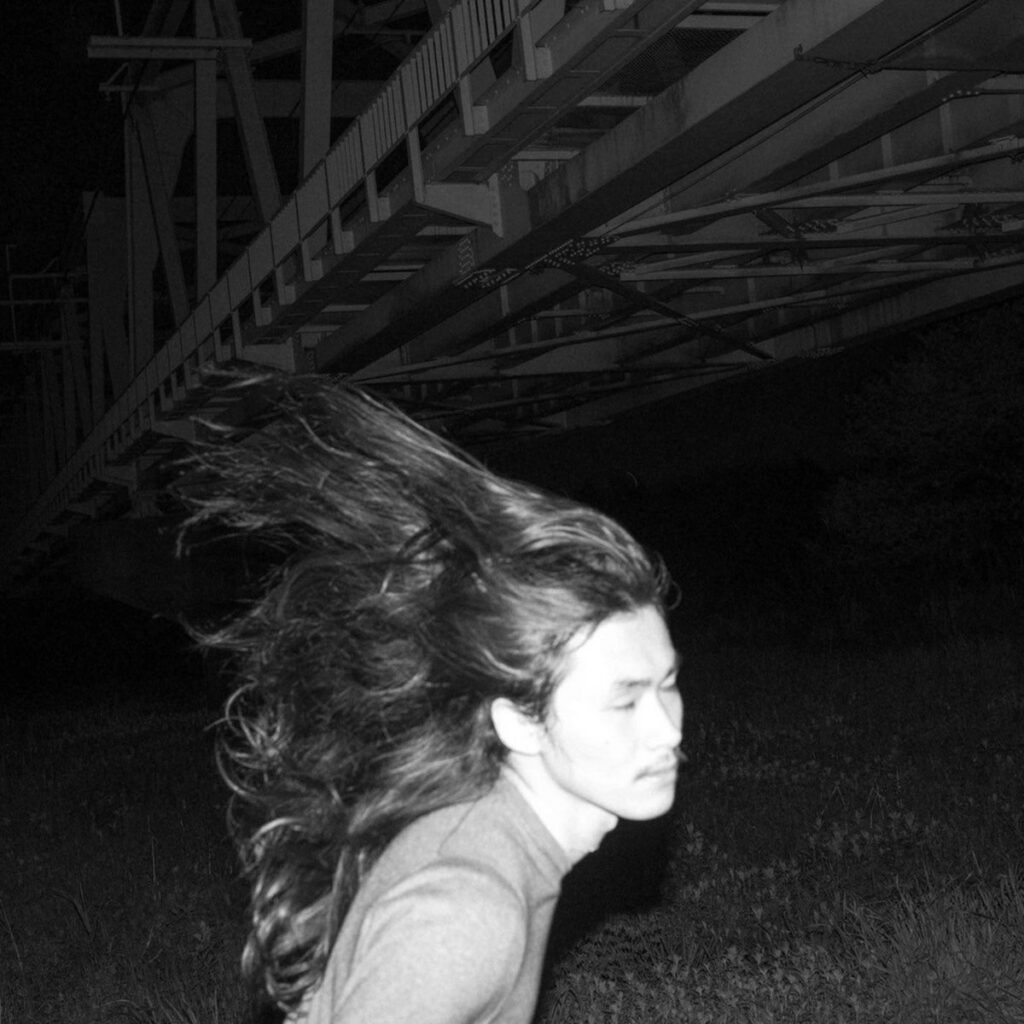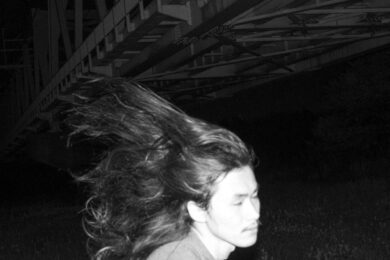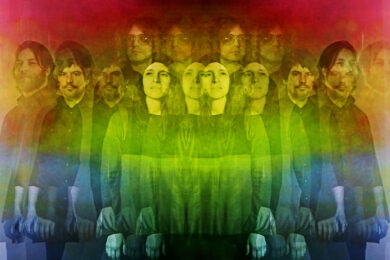The seasons are changing. The rose had its last flush of fluffy white blooms, the tall stalks of the lobelia are bending, petals shrivelling to brown, and the big purple-black dinner plate dahlia is succumbing to the powdery mildew I couldn’t keep under control. I have bought 99p violets to fill the gaps in the garden, and a box set of Berlin Alexanderplatz to see me through the colder months (no spoilers!).
Recent reads I can recommend are David Toop’s new book Two Headed Doctor: Listening To Ghosts In Dr.John’s Gris-Gris, and Martin Herbert’s Tell Them I Said No. The former is about an album I had no real fondness or connection to, but it’s much more about various New Orleans scenes; about the under-appreciated contributions of Harold Battiste, about voodoo and hoodoo, about race and the record industry, and Sonny and Cher. The latter is a book I have often bought for other people, without actually having read it myself – until now. It is likely the closest I will ever get to reading a self-help book, I can highly recommend it.
Gigs were plentiful (Neubauten, Nate Wooley, International Bagpipe Festival, Supersonic) but a particular highlight was the Incapacitants two-nighter at Cafe OTO, effervescent and as raucous as you’d expect, with a table flip to close the sonic high water mark of the second night. My fellow music writer Philip Clark messaged me after the first night and described it as a ‘snowballing continuum’, a description I cannot better. (I hear he might be writing a piece on them for the LRB.)
Elsewhere I have been diving back into the equally shiny and grimy world of the lonesome early synth musician, that period where fellas would spend their work bonus on a newly affordable synth and sit in the box room making music about space travel and imagined lands. This hunt makes me briefly grateful for the internet, without which I would know none of these people.
Dorothy CarlosSplitSelf-Released
A few short releases to open the column. Firstly, an EP of sorts that clocks in at little more than most standard pop singles in the form of three short pieces by cellist and electronic musician Dorothy Carlos. The tracks sound like the movement of music through fibre optic cables, where the cello is wriggling and stuttering, and a phone call gets patched into the line by accident. Previous release Alter, Alter is possessed of the same qualities, and I covered a denser, noisier collaboration with synth builder Brian Oakes back in 2022. This release comes with an accompanying github page that host Carlos’ interactive sleevenotes, and which includes Baháʼí prayers, links to webpages about Kafka and pleasingly rudimentary animations.
Greasy BitchesAugust 18, 2024Self-Released
A while back I wrote about a Florida synth musician called Bacon Grease who had released a tape on Fort Evil Fruit. Cheers to that label for putting Bacon Grease on my radar as it also led me to their duo, Greasy Bitches, who have been posting quarterly dumps of what may or may not be chunks of live sets. This one from August is really good, with the off-kilter, barely-quantised grot-bonk sound of Bacon Grease’s solo stuff, with a swampy squall of vocals that edge upwards, the whole thing coagulating into what sounds like a lo fi noise punk band playing a set from a small bathroom at a house show. I would like to hear a full album by these goblins, it’s solid. More Greasy Bitches please!
Jeff Anderle, Theresa WongTúyshtakSelf-Released
Final entry for the short releases is this single seven-minute piece about tuning written by musician and artist Theresa Wong and performed by Jeff Anderle, with the simple aim of tuning you in to tuning. It’s a just intonation piece for eight clarinets, and I have found it very useful, if that’s not too crude a response. A short piece that simmers me down, hits pause and holds space, and makes me think about my breathing.
Fred Moten, Brandon Lopez, Gerald CleaverThe Blacksmiths, The FlowersReading Group
I have noticed a lot of excitement about this release on Reading Group, the second album by the trio of poet Fred Moten, bassist Brandon López, and jazz drummer Gerald Cleaver. Reader: that hype is wholly warranted. It’s poetry as music and music as poetry. Moten’s words lead, lyrically, timbrally, poetically – but the bass and percussion loosen the grammar. Associative inflections elevate the raw sound of each player, which at root – even if they were stripped of meaning or mood – runs each part in constantly moving triangulated constellation of sound and meaning, evolving and repeating; stretching, infilling, and expanding. I want to say something profound, literary, articulate – but what I mean to say is: this is really exciting music and I love it to my bones.
Tomo AkikawabayaThe Castle IIMecanica
I’m late to this but it’s my most listened to purchase of recent months. Tomo Akikawabaya was a fairly anonymous Japanese synth musician working mainly in the 1980s, who released some music in Japan, became dissatisfied, tried to get signed in London, failed, and returned home. Little is known about him, and most of his releases feature the same model on the cover (who also worked with YMO). Minimal Wave released a 2xLP of his work in 2015, and Polish label Mecanica have picked up the thread this year with The Castle II, which is my most listened to release of the last month or two, settling in the cracks between genres so that it’s always a good time to listen. Much of it sounds like a Japanese new wave musician having a strange dream about Scott Walker’s future post-Drift releases. I enjoy the moments the vocals become a little overwrought, anchored by steadily chugging drum machines. Favourite track is the loop-it-to-the-horizon feel of ‘Machine D’Amour’.
Masami MakinoOmoya: Houses For The Blue MeditationFort Evil Fruit
There are many echoes of music I have known and loved in this second album by Japanese musician Masami Makino. On early spins I’d picked up the ghost of Robbie Basho’s sweetest instrumentals, and the sleeve notes lean into this as well. But in among this sweetness are less than soothing sounds, the finger-picking vistas tempered by monochrome washes of static, collaged with rudimentary sound recordings (made in the Parvati Valley in India), and other analogue sources. Altogether a thin place, between the spirit world and the living, and an album that really comes to the fore as company on lonely nights.
Ben VidaVocal TrioBlume
An understated acoustic vocal record by Ben Vida, which has earned its place in the now-playing floor pile in recent weeks. Simple sketches for a trio which comprised himself, and two dancers Amy Gernux and Lotte Rudhart, all with dead time on their hands as another project stalled. They sing simple elongated phrases, and make beats – the pulsing heard when two tones are extremely close in pitch – along with harmonies, a little dissonance, and something a little like a Shepard Tone. The root concept, if I understand it, is to cast the larynx as the pure source of the sound, and the mouth as the filter. I have infinite appetite for vocal work like this, which indulges in the pleasures of voices singing together in the most minimal modes, and that toy with sonic fundamentals in the perfect imperfect instrument that is the body. (Also recently out on Blume is an essential reissue of James Tenney’s Postal Pieces, and this compilation, which I wrote some new sleevenotes for).
Rat HenryMinimum Table Stacks
There is some romance and nostalgia to the sound of Rat Henry that I find deeply comforting. I like the dreary baritone, the mushy sound quality with the clean guitar lines picked out and gleaming; interference from who knows where, interspersed with shaved off hunks of minimal and/or lo fi electronic workouts. I detect in it a sort of yearning to be making what Paul Major and other heads call ‘Real People’ music (they give a hat tip to Jim Shepard, among others), but the catch-22 of ‘real people’ music is probably that as soon as you know and love a load of ‘real people’ music you won’t be able to make any ‘real people’ music by definition, as you’ve got yourself into the realm of the heads. That is perhaps a discussion for another day, and I don’t mean it to sound negative, as this sense of knowing gives the album a bit of gloss and breadth that’s altogether charming like the best private press records – the transition from the backyard garage opener ‘Horrible Person’ into the blobby drone of ‘Bells For Radiator’ is a good example. I missed them playing London recently as I had to DJ some medieval music at a gig, a clash I was quite disappointed about. I have one final desperate request relating to this album though: can someone please tell me what the refrain at the timestamp 1:00-1:05 in ‘Smashing Plates Across the Floor‘ is reminding me of?
AOB
Death Is Not The End’s 7″ reissue series 3-3-3 is full of gems.
The French band France are playing the UK! This almost never happens. I presume they will be playing the hit/s.
I don’t seem to be able to go a column without highlighting a new experimental hurdy gurdy record.
I also picked up this wild sounding 10″ at Cafe OTO’s excellent record racks, which documents a night time event at Osaka’s Expo 70. Get down there if you’re at all interested in Japanese rarities (I have seen Kan Mikami, Haino and Aunt Sally originals down there lately) or jazz and improvised music, from Coltrane, Tapscott, and Grachan Moncur, to UK and European players, including a Japanese pressing of Derek Bailey’s Solo).




